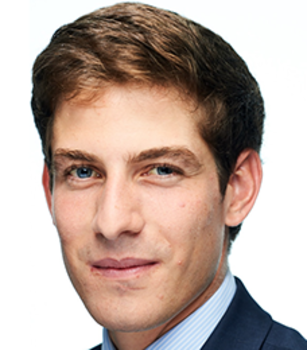PAUL STOCKERT
Student story

The collaborative and cohesive nature of the student body stands out. Whether it be job applications or academics, supportive and motivated peers surround you to help push your limits.
Before starting the MIF at HEC, I completed my undergraduate studies at the University of St.Gallen. Between my Bachelor and Master’s studies, I interned in two different sectors, starting in M&A advisory and then completing an internship in banking supervision.
Why choose the MSc International Finance
First of all, the MIF offers a wide variety of electives and provides an in-depth insight into the diverse subfields of finance, which clearly distinguishes it from comparable programs.
Secondly, the MIF offers balanced teaching between motivating professors and experienced practitioners. At HEC, students acquire the necessary theory and then apply it. It is clear that this focus provides you with skills that give you an edge at the start of your career in finance.
Thirdly, the collaborative and cohesive nature of the student body stands out. Whether it be job applications or academics, supportive and motivated peers surround you to help push your limits.
Fourthly, the strength of the alumni network makes HEC a very attractive choice. Everybody keeps close ties with HEC and is willing to help with career advice. This was particularly helpful during the London study trip, where lots of alumni came to share their experiences.
Program highlights
Regarding academics, certainly the class “Macroeconomics of Crisis Economies” stood out to me. The Governor of the Central Bank of Argentina shared his experiences from managing economic crises and his views on macroeconomic mechanisms.
Another highlight was the reverse-teaching-lecture in which selected student-teams could teach a certain part of the M&A class to their peers. On one hand, you learned how to explain theory and prepare adequate study material and on the other, it was simply fun to “teach” your fellow MIF students.
This project also illustrated how enriching and motivating teamwork is with peers at HEC. I think that all of us recognized how quickly you can learn in a team of driven students. Furthermore, the Accelerated Track of the program unites students from multiple disciplines, e.g. engineering, maths or humanities.
This collaborative nature also applies to the faculty, both to academics and practitioners. They are always approachable and available to answer questions, giving us invaluable career advice.
Learning outcomes
The overarching learning during the year was an insight into how important it is for your personal development to be surrounded by driven and intellectually curious students. This also helped shape our future career paths as we recognized the stimulating impact of working in an ambitious environment.
Regarding soft skills, the MIF taught us how to manage several simultaneous tasks. The combination of solving problem sets, preparing for interviews and studying for exams required good organisation skills. In this respect, we also learned how to structure teamwork and to coordinate work streams.
Regarding hard skills, the various classes enhanced and broadened our financial analysis skills. Understanding market mechanisms, assessing capital structures and scrutinizing the cash generation power of companies gave us a rounded financial education.
Investment banking internship in London
Like the majority of the MIF-students, I will spend my summer in London working in investment banking, where I will be a Summer Analyst at PJT Partners’ M&A and Restructuring advisory.